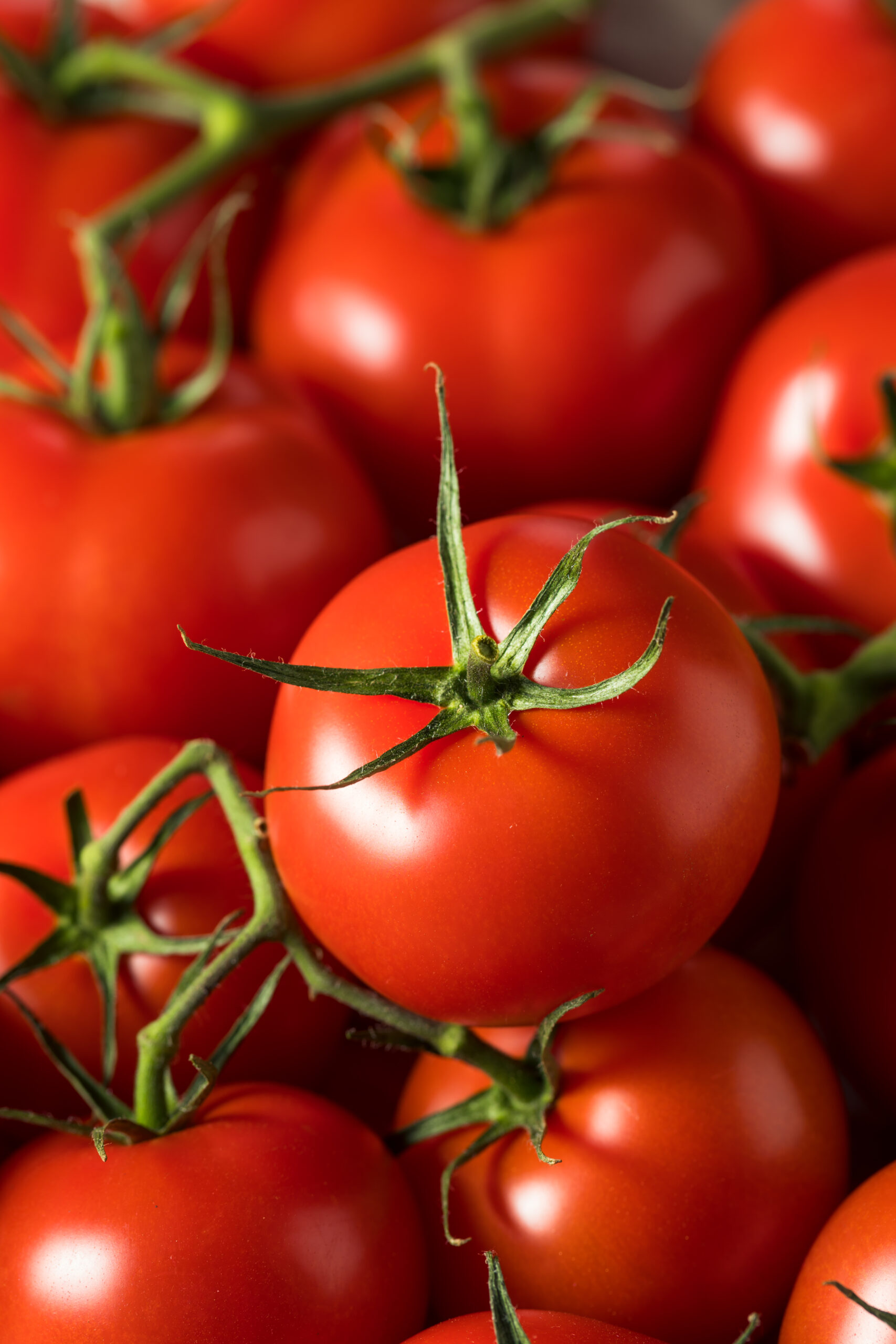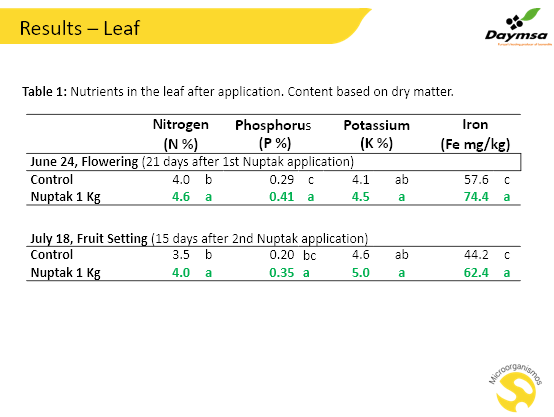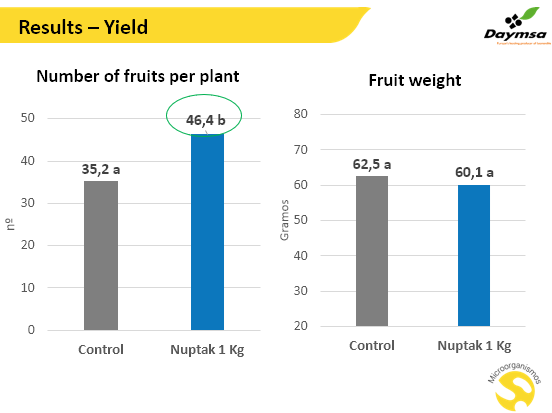A trial conducted by DAYMSA confirms improved nutrient uptake and increased tomato yield following the application of the biofertilizer Nuptak®.
Open-field processing tomato is a key component of extensive horticulture in southern and eastern European regions, where agronomic and climatic factors directly affect crop yield and final fruit quality. Improving nutrient uptake efficiency, especially in soils with nutrient lock-up or pollution for accumulation of nitrates, remains a constant challenge.

Raw Organic Vine Ripe Red Tomatoes in a Bunch
In this context, biofertilizers represent a strategic tool to boost crop development and maximize yield. Nuptak® developed by DAYMSA is a biofertilizer based on the bacterium Priestia megaterium CB200, known for its ability to fix atmospheric nitrogen. Additionally, it can solubilize soil nutrients, making them available to the plant and enhancing root development.
To evaluate its effects on tomatoes, DAYMSA conducted a technical trial with conclusive results.
Study Methodology
The trial was carried out by the reputable Bulgarian research institution Maritsa Vegetable Crops Research Institute (MVCRI), under the technical direction of Dr. Tringovska.
The objective was to evaluate the effect of Nuptak® applied via fertigation, on the yield and nutrition of open-field tomato plants.
The Prometey variety, developed for industrial processing, was used. Transplanting took place on May 20th, 45 days after sowing in the nursery. Irrigation was managed through localized drip irrigation, monitored by moisture sensors to ensure water was supplied according to the crop’s needs. The trial was conducted on soil with low organic matter and low nutrient availability, an ideal condition for clearly observing the response to soil-acting biofertilizers.
Two treatments were evaluated: a control with no Nuptak® application, and a treatment with Nuptak® applied at 1 kg/ha at two key stages: one week after transplanting and one month after the first application.
Each application was preceded by irrigation to moisten the soil and followed by a 10-minute irrigation to facilitate the product’s incorporation into the root zone.
Assessments focused on two critical development stages: flowering (June 24th) and fruiting (July 18th). Foliar analyses were performed and key yield parameters were measured at the end of the crop cycle.
Results
Foliar analyses showed a significant increase in nutrient concentration in Nuptak®-treated plants compared to the control, both during flowering and fruiting stages. The increase in nitrogen content stood out with significant differences, a result of Nuptak®’s ability to fix atmospheric nitrogen in response to plant demand.

At harvest, the effects of the Nuptak® treatment were also noteworthy:
- Number of fruits per plant: significantly increased compared to the control.
- Average fruit weight: remained similar in both treatments.
- Total yield:
- Control: 104 t/ha
- Nuptak® 1 kg/ha: 131 t/ha (a significant increase in total yield)

Study Conclusions
The results of the trial proved that applying Nuptak® at a rate of 1 kg/ha at two strategic crop stages has a positive and measurable effect on open-field processing tomatoes. Specifically, Nuptak®:
- Improves the uptake of essential nutrients such as nitrogen, phosphorus, potassium, and iron.
- Stimulates root development and vegetative balance.
- Significantly increases the number of fruits per plant, resulting in a 26% increase in commercial yield.
- The benefits measured in processing tomatoes could also be extrapolated to other tomato varieties, including those grown in greenhouses.
These findings position Nuptak® as an effective and sustainable solution for improving tomato productivity, delivering value from the early stages of crop development through to harvest.
